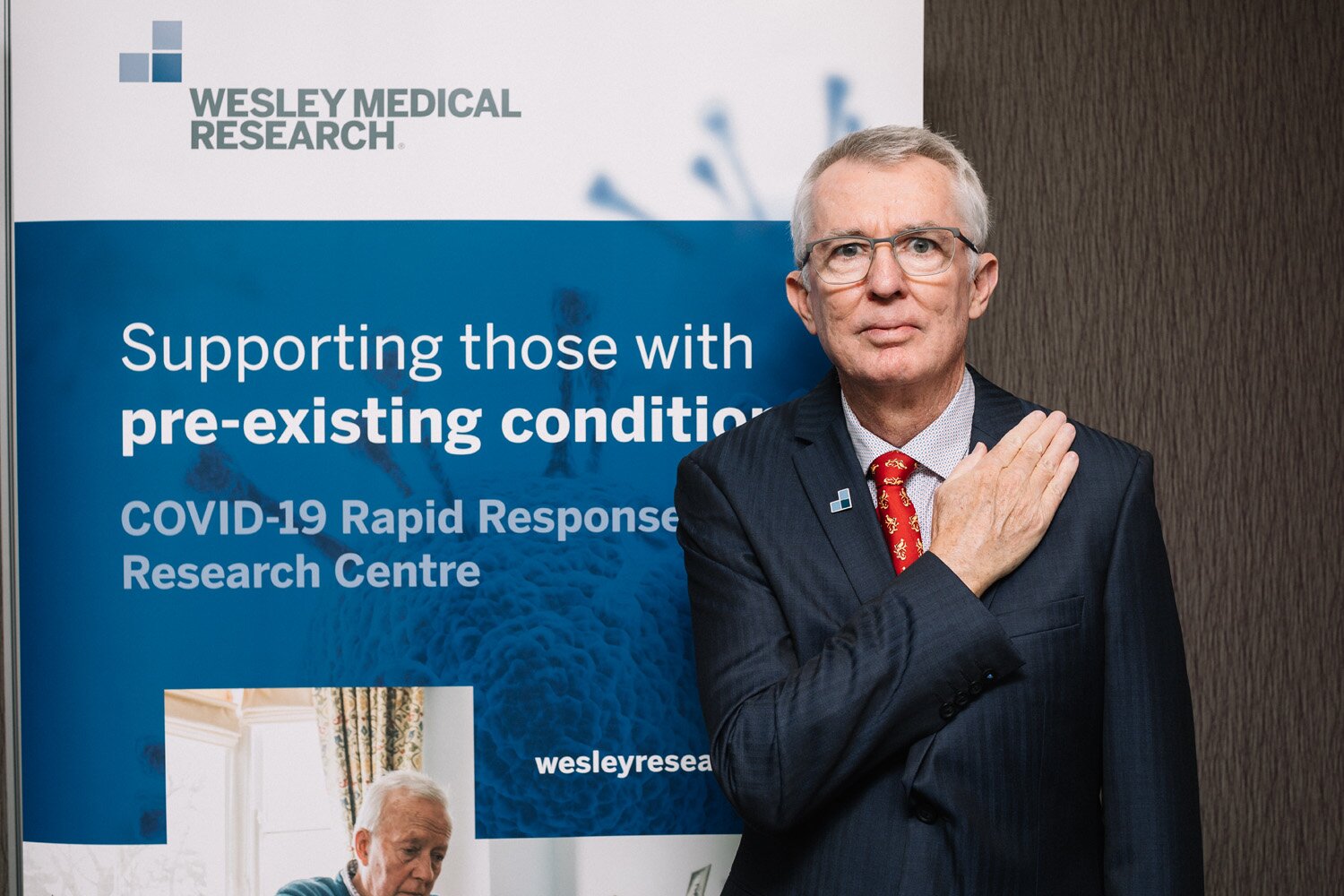Cardihab helps Wesley Medical Research lead the way in COVID-19 rapid response research

Cardihab will help researchers understand the risk of COVID-19 infection and isolation for people with reduced heart function as part of a project to be undertaken at an innovative new COVID-19 rapid response research centre.
The Wesley Medical Research virtual COVID-19 Rapid Response Research Centre aims to support the global community to fast-track answers to overcome COVID-19. The centre had its official opening last week.
Cardihab’s digital health platform will be used in one of the first research studies conducted by the Centre. This piece of research, led by Dr John Rivers, will examine the impact of COVID-19 infection and isolation on patients with reduced heart function.
At-risk cardiovascular patients are among the many vulnerable people who are isolating to reduce the risk of COVID-19 infection. These same people are inadvertently potentially exposing themselves to a new set of risks by the very process of isolation; reduced medical care, missing routine medical appointments, inactivity and weight gain as well as poor control of hypertension and other comorbidities.
Dr Rivers explained that while the COVID-19 risk is high, chronic heart conditions remain the major cause of death in Australia and globally. Looking after these patients therefore should remain a priority and this project hopes to improve their care during the pandemic.
“We need to balance the requirements of protecting those people from the virus with the risks of protection itself,” Dr Rivers said.
The study aims to assess whether a digitally-enabled management strategy provides improved outcomes when compared with conventional care in a cohort of Left Ventricular Dysfunction (LVD) patients who are infected with, or isolating to avoid, COVID-19 infection. It is likely those with LVD or heart failure who become infected with COVID-19 will see a deterioration of left ventricular function.
This study will use Cardihab’s clinically validated digital model of care to enable physicians to care for patients with impaired heart function remotely. Using the Cardihab app via smart phone devices and the secure clinician portal, physicians will be able to assess whether this model of care improves outcomes for those at-risk patients in terms of heart failure readmissions, deterioration of symptoms and their condition. Quality of life and mental health status will also be assessed in this study.
The transition from conventional care to models incorporating digital healthcare delivery has been accelerated as a result of COVID-19 and this change is likely to be sustained in the way chronic diseases are managed in the future.
“The impact of isolation and COVID-19 has given us the chance to reconsider how we deliver healthcare in the future, to a model which is more patient centred, user friendly for the consumer, and enables better outcomes,” Dr Rivers said.
The use of evidence-based digital health technologies is set to become the new standard in chronic disease management. Helen Souris, Cardihab CEO welcomes the technology transformation currently taking place in the healthcare sector and is an advocate for establishing evidence-based digital health technologies as a standard of care.
“We are proud to collaborate with Wesley Medical Research and Dr Rivers to enable a better understanding the benefits of technology in managing patients with chronic heart conditions affected by COVID-19 and isolation,” Ms Souris said.